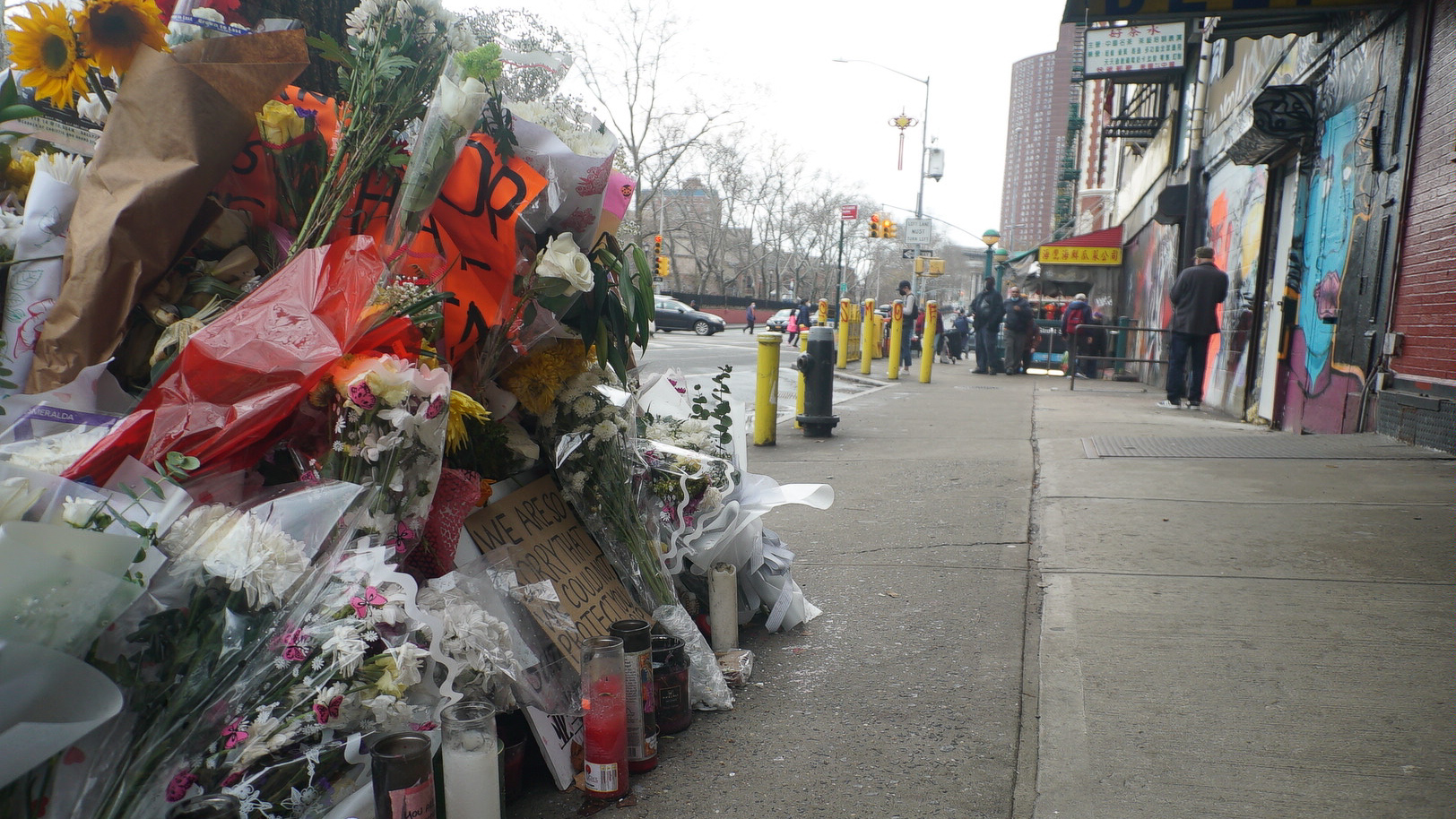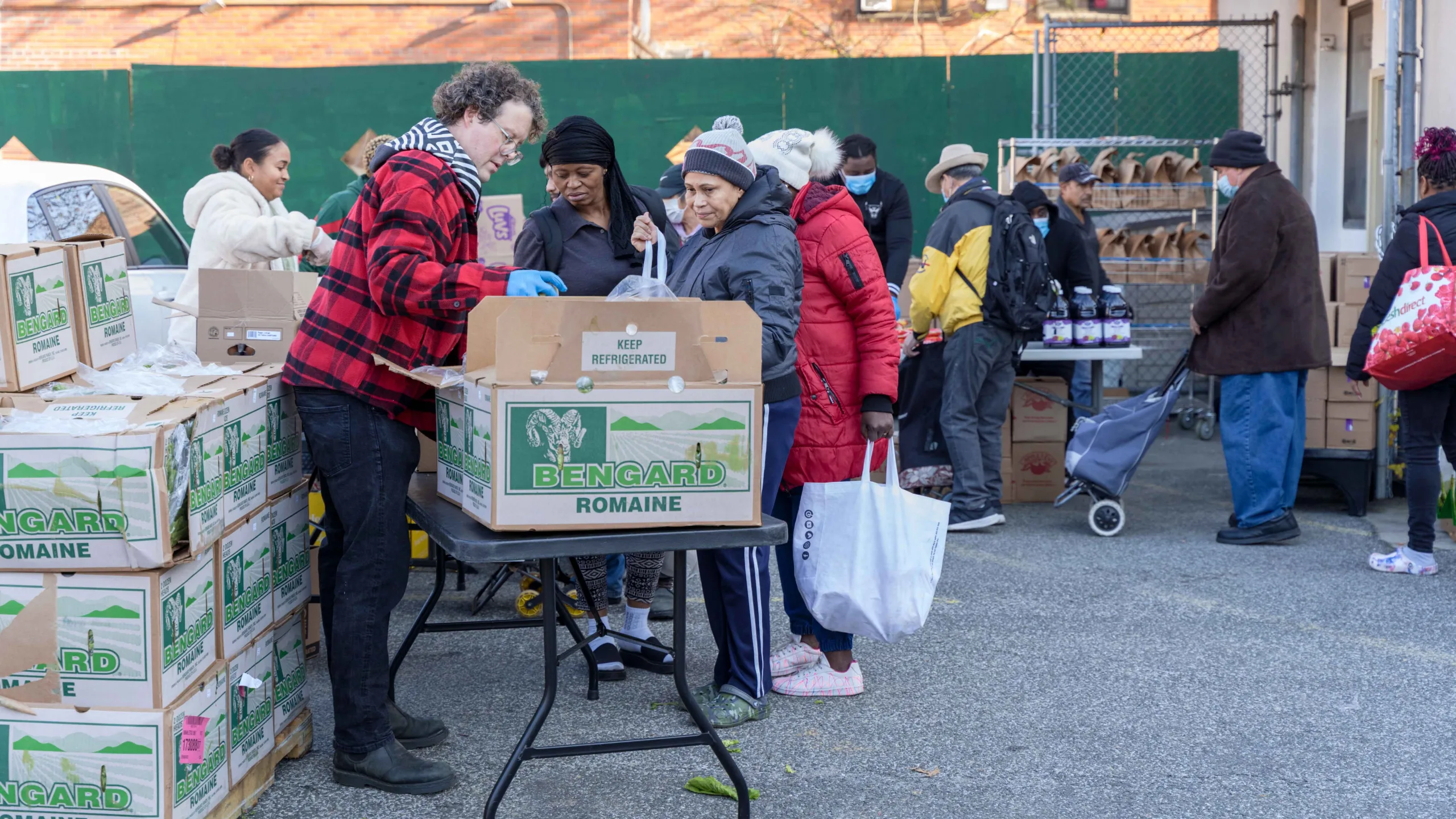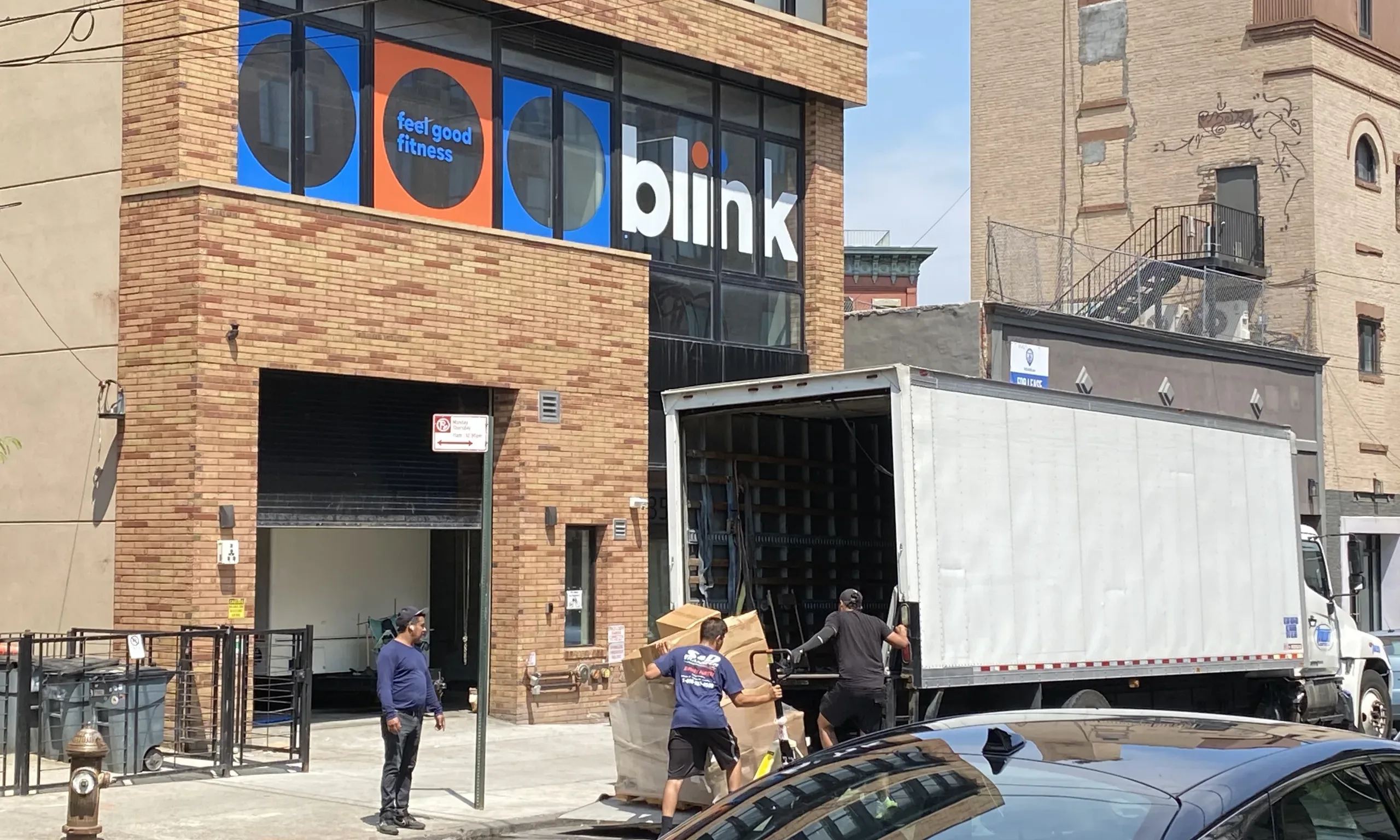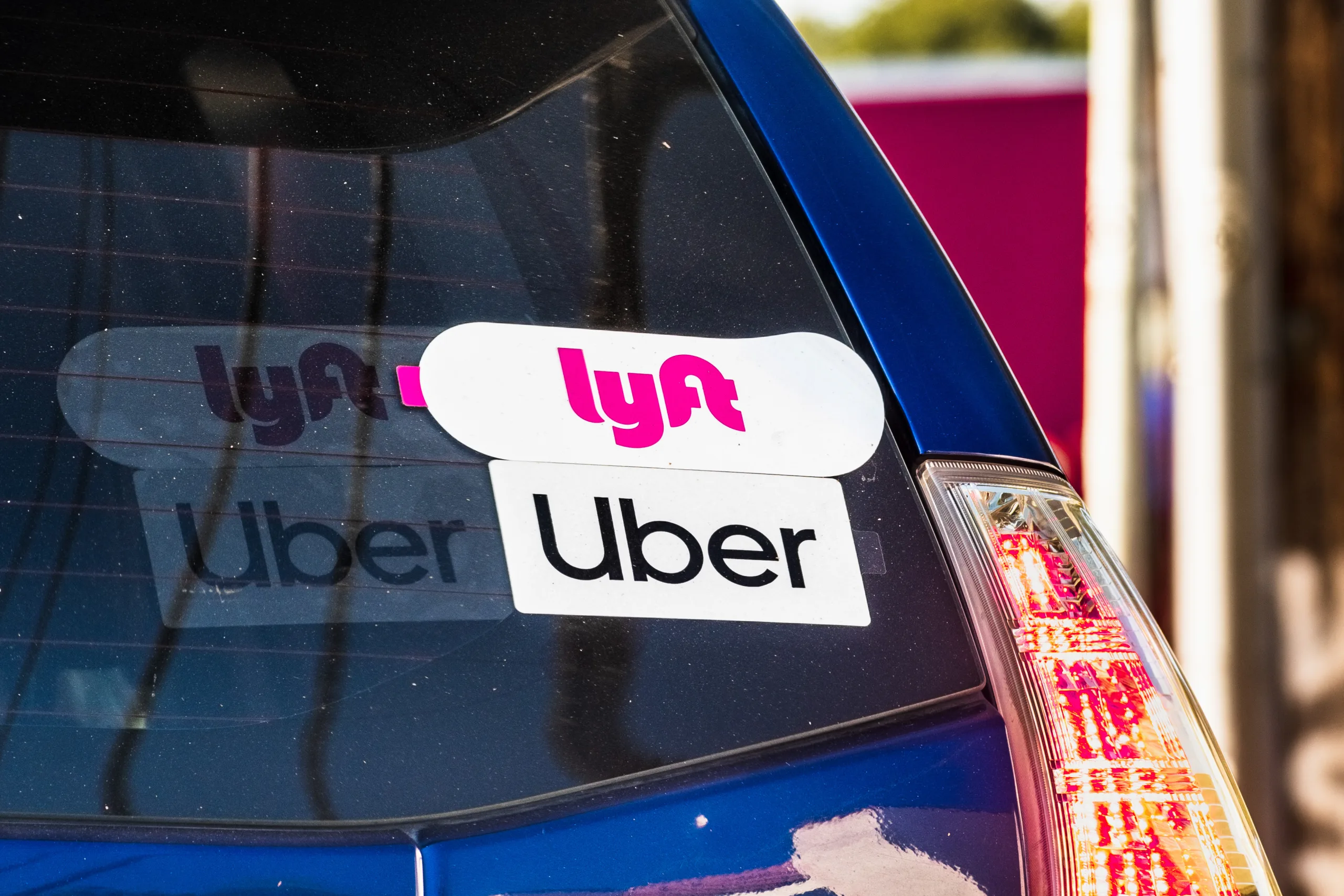Cheyuk Chen, 82, did his first patrol of the block where he lives in February of last year. He usually goes out on Thursdays and Sundays with a group called Chinatown Block Watch, a group of volunteers that started to meet and walk up and down Chinatown streets in February of 2020 to prevent anti-Asian hate attacks.
Chen has lived in Chinatown for roughly six decades. It’s where he landed as a young man, built a family, spent a career as a security guard, and it’s also where he still lives. He’s seen crime ebb and flow over the years but the anti-Asian attacks in Chinatown have made him feel less safe than he has ever felt before, he said. He certainly knows of the attacks that made national headlines, but he also said that he’s seen multiple smaller incidents like the beating of a young Asian man with his own eyes.
For him, patrolling the streets of his neighborhood was a way to take safety issues into his own hands. There are good cops and bad cops, he said, but he has felt like many police officers have ignored pleas from Chinatown residents about hate crimes.
And so he joined the group which, he said, acts as an extra set of eyes in Chinatown. While on this neighborhood watch, he’ll keep an eye out on any incidents that may require him and his fellow volunteers to interfere or to call 911.
Since the onset of the pandemic, Manhattan’s Chinatown has become a place where anti-Asian hate, increased poverty, and housing issues have been felt acutely. The streets of New York City’s Chinatown were empty at the beginning of the pandemic, when fear of the coronavirus and former president Donald Trump’s anti-China rhetoric kept many people from coming to the neighborhood, hitting small businesses that were already operating on small profit margins extremely hard. Then came the attacks that headline after headline spread fear among Chinatown residents.
The murder of Christina Yuna Lee, who was followed into her Chinatown apartment, and the brutal beating of a 67-year-old Asian woman in Yonkers, are the latest reminders for Chinatown residents like Chen, that, as the pandemic enters its third year, elderly Asian residents and Asian women are still being attacked on the street by strangers.
In interviews with more than a dozen community members — from shopkeepers to long term residents and elected officials — one particular sentiment coursed through the interviews: The systems that were supposed to protect people — from homeless people to the elderly and women — have failed Chinatown.
Violent crimes are up, mental healthcare funding has been slashed, and many residents believe they have to take their safety into their own hands and cannot rely on the police to prevent anti-Asian hate crimes.
Also Read: Immigrant Communities Debate Harsher Bail Laws as Effectiveness Is Still Unproven
Chinatown leaders are divided on how to address these attacks, with some calling for harsher law enforcement strategies, like rolling back bail reform and adding more police on the ground. Others believe more policing may ultimately create more suffering in the City, rather than addressing the root causes of the violence. And while there are no easy solutions for this problem, Chinatown residents and community leaders told Documented that they felt that a lack of mental health resources from the City; the lack of proper attention from police; and the economic strains brought about by the pandemic have all led to violence in the area.
Feeling left to fend on their own
Intoxicated men sometimes come into Long’s banh mi shop, which only does take out, to stand around without purchasing anything. The Vietnamese immigrant, 56, opened up Banh Mi Co Ut on Elizabeth street in the middle of the pandemic and said that he has learned that speaking forcefully in English to some may help avert conflict.
“You have to show that you can stand up for yourself,” he said. “Be a tough guy.” Speaking English was a way for him to push back, he said. People who don’t may run the risk of getting bullied, he said.
Like many Asian small business owners in Chinatown he’s found ways to work around safety issues on his own. Shopkeepers around him did the same when they started feeling the hostility towards Asians increase in early 2020, he said. Some moved their vegetable or fruit stands away from busy intersections where they see a lot of drug consumption. Other folks shortened their opening hours, closing their stores as early as 5 p.m. to avoid walking home in the dark in those days.
These are the kinds of makeshift solutions many Asians living in Chinatown adopted to cope with feeling unsafe.
Long and other residents told Documented that they think the physical presence of police officers on the street would help deter violence and signal that it’s not ok to attack elderly Asians.
The police department started an Asian Hate Crime Task Force in the summer of 2020, staffed with 25 detectives of Asian descent. The police force speak a combined of nine languages and were supposed to build better relationships with the Chinatown community, which had been reluctant to work with police, whether it be because of fear of authorities, language barriers or worries that going public about their assaults would result in more troubles, the Wall Street Journal reported at the time of the task force’s creation. NYPD recently expanded the force to include two more detectives and deployed undercover plainclothes officers to patrol the streets to prevent more hate crimes. But despite the force’s existence, anti-Asian hate crimes in New York City rose by 361% last year and most hate crime charges were dropped in 85% of hate-related arrests, mounting more pressure on the mayor to address the issue.
Jan Lee, 56, a long-time Chinatown resident who co-founded a neighborhood organization called Neighbors United Below Canal, said most Chinatown residents he knows want more police officers in the streets. He said that he has falsely been arrested for taking photographs in his neighborhood but that his personal experience does not necessarily make him conclude that increasing police presence in Chinatown would be bad.
Also Read: Immigrant New Yorkers Unite to Save Chinatown Institutions and Demand Better Labor Standards
“Do I say that police should be defunded? And that having police on the streets is dangerous to Chinatown? No, I don’t believe that at all. I believe that with an increase in police, there needs to be an increase in training,” said Lee. While he does not believe that Chinatown needs a “militarized” and heavily armored police force he does think that “we should certainly have a police force that is well trained” to adapt to different cultural needs.
Some longtime residents have mentioned that they worry that existing shelters are underfunded and cannot provide the kind of long-term care that some chronically ill patients may need.
Jacky Wong, 45, member of Concerned Citizen of East Broadway, said that Chinatown, much like many other minority neighborhoods like Harlem or Bedford Stuyvesant, is oversaturated with shelters and that the neighborhood is already doing “its fair share” in helping unhoused people. He told Documented that he is worried that the opening of a new shelter on East Broadway in the middle of a commercial strip may make the area unsafe, especially given that many vulnerable elderly who don’t speak English live in the area (he said he is not concerned about another shelter opening in a less busy neighborhood).
“They dump these facilities in our areas and never think about the oversaturation,” said Wong.
But others, like Jo-Ann Yoo, Executive Director of the Asian American Federation, a nonprofit that advocates for the wellbeing of the Asian population in New York City and works with dozens of other organizations across the City, don’t think that more police is the solution, in large part because she feels like NYPD has been hesitant to classify crimes as motivated by hate against Asians and largely dismissed pleas for help from Asian residents in New York.
“We are angry because we’ve been screaming at the top of our lungs for two years,” said Yoo. “I feel like our community has been dismissed. And that is my frustration.”
Grassroots public safety
In a recent event organized by Soar Over Hate, a nonprofit that was founded in response to soaring anti-Asian hate crimes during the pandemic, at the Asian American-owned store Yu and Me Books, hundreds of people lined up for two and half hours to receive a can of pepper spray. The event took place just a week after a video of an elderly woman Yonkers was brutally beaten went viral. The organization and the bookstore owner Lucy Yu, 27, and the organizers of Soar Over Hate had worked with a licensed pepper spray seller to organize a handout of 1,000 pepper canisters to the community. While possession of defense sprays is legal in New York, it is illegal to ship, mail or order pepper spray. People lined up over the length of three blocks to receive one of these devices.
Absent an organized and efficient police response, Chinatown residents have had to watch each other’s backs. This was one of many events like it that Yu and others have participated in. Yu has been working on a series of events that is aimed at centering the narratives of Asian women, too, and providing them a “healing space,” she said. As a small business owner who has to close up her shop in the late evenings, she appreciates the kind of community that has been created through these gatherings. Soar over Hate has brought mental health resources and has conducted safety training for people in the neighborhood. And organizations like the Asian American Federation have been holding events to help Chinatown residents feel safe, including panels about the needs of elderly Asians and self-defense training in Chinese and English.
“I just really haven’t seen that in a different neighborhood, I think because Chinatown has been left in the dust a lot of the time,” said Yu. “The community that’s been coming up to help each other out has been phenomenal,” she said.
Also Read: This Chinatown Street Has Been Shut Down Since 9/11, and Residents Are Fed Up
Even on an individual level, people in Chinatown have adopted small ways in which they ensure their loved ones are safe. Some long-term residents told Documented they started group chats with their family or community members, asking everyone to tell one another that they got home safely at the end of a day or at the end of a gathering.
Billy Kim, 35, who is a Korean-American evangelical pastor and who’s lived in Chinatown for close to a decade said that he began one of these group chats after speaking to Asian women congregants after a vigil for the victims of the Atlanta spa shootings.
“I didn’t understand the emotive struggle and the fear and uncertainty and the lack of support they were feeling. I didn’t realize that,” he said.
Long term issues require long term solutions
While much of the conversation around anti-Asian hate attacks is centered around safety and security, less attention has been paid into what is causing this uptick in violent attacks.
Many residents expressed that the safety issues sprung out of a confluence of issues which includes lack of jobs, affordable housing and mental health services.
Isabel Ching, a social worker who is the executive director of the multilingual mental and physical care provider Hamilton-Madison House, which has a facility near the Manhattan Bridge, sees thinly stretched resources as a contributing factor to recent attacks. In many ways, the pandemic has exacerbated socio-economic circumstances in Chinatown that all contribute to safety issues in the community.
“Before COVID, we’re able to maintain and help [contact with patients who have chronic mental health issues] through the process. During COVID, [that] has been very, very difficult for a lot of our patients here,” said Ching.
While some of the attackers were homeless and suffered from mental illnesses, unhoused people also suffer from the stigma, experts told Documented. People sleeping in the streets are also vulnerable to random acts of violence. Several homeless men have been murdered in recent weeks and a similar killing spree of homeless men took place in 2019, with one of the murdered men being a beloved 83-year-old immigrant from Hong Kong. Mayor Eric Adams has recently announced that the City will be stricter in enforcing transit system rules and will stop homeless folks from loitering in public transit. In addition to that, the City has also cleared 239 homeless camps recently, but Ching, who encounters many unhoused people in her line of work, worries that these actions may not address underlying issues of people suffering and needing help.
“In the end, it really is all about services,” she said, adding that she worries that arresting homeless people in the subway will only move them elsewhere without actually helping them. “I think more needs to be invested to make sure that while they’re above ground, what do we do with them? How do we help people — [not just the] homeless — anyone who needs services with mental illness?”
Her facility provides mental and physical health services and child and elderly care in multiple Asian languages, on the Lower East Side of Manhattan. There’s one full-time psychiatrist who may need to assess or repeatedly meet with 600 patients per year, she said.
Not being able to see some patients in person, due to the need for social distancing, has led to an increase in incidents that are abnormal for her patients, including multiple suicide attempts and one homicide. While some of the recent anti-Asian hate attacks were committed by men with mental health issues, there is only limited data about the perpetrators overall, with one study pointing out that 75% of all attacks are committed by white assailants.
Also Read: How Mutual Aid Supported Chinatown When the Government Failed
“For the past several years, New York City has been losing inpatient psychiatric beds,” Jacquelyn Simone, Policy Director for the Coalition for the Homeless, told Documented. “Now, not all people who are homeless have mental illness and not all people who have mental illness need inpatient hospitalization. But for people who do, we’ve found that for years, even people who are voluntarily seeking hospital care for a mental health crisis are not always able to access it. And that’s directly related to the loss in these mental health resources, including inpatient beds. And during the pandemic, this trend was accelerated because many of those beds were actually repurposed for COVID care.”
“[There were always] no resources for our community, you know, and I think that really, it starts to permeate, right? […] And so it’s a constant lack of resources that get overwhelmed when something happens. And it all aggregates. And it’s aggregated over a ton of time,” said Yuh-Line Niou, an assemblywoman for the 65th district which includes Chinatown, the Lower East Side and the Financial District.
TestPost3
“Chinatown’s often left out of a lot of our resources. We’ve had very little access to things, you know, but when you think of New York City, is there ever an image in your mind where there isn’t a Chinatown?”
And in many ways, people who have seen Chinatown suffer throughout the years, the only way to bring lasting safety to the community is to invest in the community’s overall wellbeing.
“You don’t want immediate solutions [for these issues]. The hate wasn’t immediate. And the solution for it is not immediate,” said Niou.












